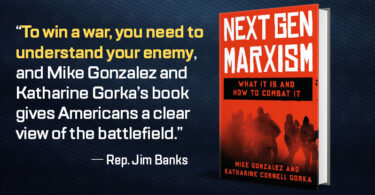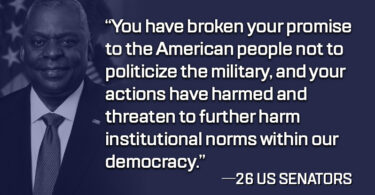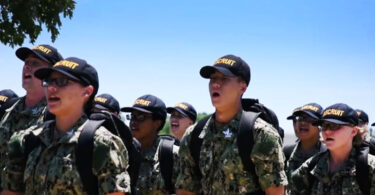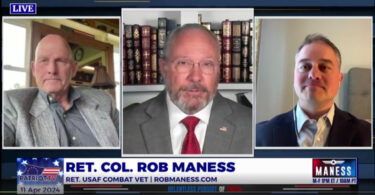By Col Ron Scott, PhD, USAF ret, USAFA ’73
STARRS President & CEO
A Memorial Day speech given in Kimball, Nebraska in 2010
Introduction
Good morning and thank you very much for the invitation to be part of this program.
My wife Mary and I know how much my Father loves and cherishes the people of this community. What you have is very special. I mention this notion of community because it goes to the heart of my message.
Communities
Today, we honor those who gave their lives in defense of our Nation. Our Nation is a network of communities, like Kimball, clustered from coast to coast–communities made up of families and homes in neighborhoods, workplaces, playgrounds, and stores selling all kinds of merchandise. We move about in these communities whenever we want to spend time with a family member or friend, to work, to purchase something we want or need, or to worship and play. We even move between communities when we want or need to. These examples are all benefits of our basic freedoms.
Freedoms
Since our forefathers declared independence in 1776, we all enjoy freedoms that are unmatched anywhere else in the world. Throughout our history, over a million Americans have given their lives to protect these freedoms. Why would they do this? I believe it is because they understood why life as an American is worth living.
The Last Samurai
I’m sure most of you have watched and enjoyed the movie, “The Last Samurai.” As a refresher for those of you who have seen it and for those of you who have not, let me provide a short summary. Tom Cruise plays Captain Nathan Algren, who is hired to help build a modern Japanese army and to destroy the remaining Samurai warriors.
Algren is haunted by his role in slaughtering Native Americans as a soldier in the western regions of America. Now, as a well-paid advisor to the government of Japan, Algren is witnessing how powerful business people are forcing changes upon a very traditional society. The Samurai warriors are led by Katsumoto, played by Ken Watanabe.
In an early battle between the army and the Samurai, Algren is seriously wounded and captured by Katsumoto. During his captivity and healing process, Algren develops a deep understanding and respect for Katsumoto, the Samurai culture, and by extension the rich and historical culture of Japan. Meanwhile, the Japanese Emperor is torn between his respect for Katsumoto and the advice he is receiving from a powerful Japanese business tycoon.
With these moral dilemmas as a backdrop the movie builds to a final contest between the modern Japanese army and the Samurai. During an epoch battle between a small band of Samurai and the much larger and powerful Japanese army, Captain Algren fights on the side of the Samurai, shoulder-to-shoulder with Katsumoto. The Samurai come very close to defeating the Army with Katsumoto heavily wounded and eventually fighting to his death.
As the movie draws to a close, Captain Algren presents Katsumoto’s sword to the Emperor. The Emperor, who is mourning the death of Katsumoto, asks Algren how Katsumoto died. Captain Algren responds that he would rather describe how Katsumoto lived. Here is the key moral of the story: In his struggle for redemption, Captain Algren had come to understand why the Samurai resisted many of the modern changes taking place in Japan, because many of them threatened a traditional sense of community that made life worth living.
Perhaps the movie “The Last Samurai” made a big impression on Mary and me because from 1997 to 1999, we actually lived in Japan. Dad came to visit us during this assignment, which made it extra special because he had visited Japan once before during the Korean conflict.
American Exceptionalism
The Japanese people were very gracious to us, and we have great respect and affection for them. In addition to Japan, Mary and I have lived in or visited other countries throughout the world; and, we have respect and affection for these people as well.
But what we have in America is very special by comparison. And when I say this, some would accuse me of subscribing to American Exceptionalism. Some prominent American politicians actually believe American Exceptionalism is bad and have apologized for it to other national leaders.
For whatever reason, whether through fate or Providence, let there be no doubt: America is exceptional. I do not apologize for American Exceptionalism. To the contrary, I am honored and privileged to say we Americans have something special.
- It explains why our Nation achieved the greatest level of prosperity of any nation throughout the history of humankind.
- It explains why our Nation, more than any other, has had such a benevolent hand in the affairs of other regions of the world.
- It explains why so many people want to come to our country, whether legally or not.
- Most importantly, it explains why fellow Americans are willing to risk their lives defending what America
American Ideals
What does America represent? America represents a set of ideals that are no less relevant today than when they inspired our Founding Fathers to risk lives and fortunes in forming our Nation. These ideals were boldly and clearly proclaimed in our Declaration of Independence:
“We hold these truths to be self-evident, that all men are created equal, that they are endowed by their Creator with certain unalienable Rights, that among these are Life, Liberty, and the Pursuit of Happiness.”
Today we honor those who fought to preserve these rights. Many of you standing here today committed years of your lives preserving these rights in your service to our Nation.
In my assessment, there is a dangerous movement under way in the Western world, to include the United States of America, which would substitute government for the Creator as the source of our fundamental rights.
One of the intellectual leaders in this movement is Professor George Lakoff, a professor at the University of California at Berkeley . . . somewhere over there. Among several books along these lines, Lakoff published one in 2006 with the title, Whose Freedom? The Battle over America’s Most Important Idea. In this book, Lakoff claims:
“There are no self-made men or women in America! The part of the economic liberty myth about individual initiative, individual responsibility, and pulling yourself up by your bootstraps is nonsense”.[1]
By making these claims, Lakoff justifies a large and powerful central government to provide for our well-being by making choices for us. Professor Lakoff, have you met the good people of Kimball? Would you tell them that their grandfathers and grandmothers, fathers and mothers, aunts and uncles, brothers and sisters, sons and daughters whose service we honor today, lacked individual initiative or were unwilling to pull themselves up by their bootstraps? Have you met my father? Professor, these people get it. They understand the ideals that make life worth living.
President Teddy Roosevelt came from a wealthy and influential family. Yet, he is a strong example of an individual who believed in individual initiative, individual responsibility, and pulling oneself up by the bootstraps. He implied these traits in describing American citizenship to the French at the Sorbonne in Paris on April 23, 1910. In his speech entitled, “The Man in the Arena,” Roosevelt said:
“It is not the critic who counts; not the man who points out how the strong man stumbles, or where the doer of deeds could have done them better. The credit belongs to the man who is actually in the arena, whose face is marred by dust and sweat and blood; who strives valiantly; who errs, who comes short again and again, because there is no effort without error and shortcoming; but who does actually strive to do the deeds; who knows great enthusiasms, the great devotions; who spends himself in a worthy cause; who at the best knows in the end the triumph of high achievement, and who at the worst, if he fails, at least fails while daring greatly, so that his place shall never be with those cold and timid souls who neither know victory nor defeat.”[2]
Contests
Roosevelt describes heroism in a life filled with contests. Certainly our Nation faces contests in the form of threats to our way of life. These threats are a fact of life. We cannot deny it or ignore it. Thank God we have men and women with a sense of duty to do something about it.
I would like to close my message today with a lesson from an important piece of history–the American Civil War. The outcomes of this particular contest promised either a stable federation of states that truly recognized the freedom of all people, or a fragmented collection of states and the continuation of slavery. The latter outcome would have destroyed our Constitutional Republic. Over 600,000 Americans gave their lives in this contest.
We know the outcome: our Constitutional Republic was preserved and slavery was abolished. This particular experience in our history is important evidence of American Exceptionalism and why Americans are so committed to preserving our way of life.
A major lesson of our Civil War was powerfully captured by the British political philosopher John Stewart Mill. In an obscure essay, entitled “The Contest in America” and published in 1862, Mill laid out strong arguments to convince the British government not to intervene in our Civil War. At the time, the British economy was critically dependent upon imported cotton. Their main suppliers were the Confederate states of America.
In summarizing his arguments, Mill provided observations and advice that are timeless. He drives home why we celebrate those who serve our nation. Mill also inspires those of us standing here today to do what we can to preserve a life worth living. Here is what Mill said in his concluding remarks:
“War is an ugly thing, but not the ugliest of things: the decayed and degraded state of moral and patriotic feeling which thinks nothing worth a war, is worse. . . . A war to protect other human beings against tyrannical injustice; a war to give victory to their own ideas of right and good, and which is their own war, carried on for an honest purpose by their free choice—is often the means of their regeneration. A man who has nothing which he is willing to fight for, nothing which he cares more about than he does about his personal safety, is a miserable creature, who has no chance of being free, unless made and kept so by the exertions of better men than himself. As long as justice and injustice have not terminated their ever renewing fight for ascendancy in the affairs of mankind, human beings must be willing, when need is, to do battle for the one against the other.”[3]
Conclusion
Friends, life in America is worth living; and the exceptional American way of life is especially worth celebrating and preserving.
Today we honor those who preserved our way of life. May God bless those past, present, and future, who fought, fight, or will continue to fight for our way of life.
By your being here, you demonstrate your own commitment to preserving our way of life. You represent an excellent example of an American community. Communities produce leaders and heroes. Communities produce individuals of great initiative and responsibility, and individuals willing to pull themselves up by their bootstraps.
Kimball is such a community. May God bless the good people of Kimball.
[1] George Lakoff, Whose Freedom? The Battle over America’s Most Important Idea, New York: Farrar, Straus and Giroux, 2006, p. 156.
[2] The entire speech is available at http://www.theodore-roosevelt.com/trsorbonnespeech.html.
[3] A copy of the article is available at http://www2.hn.psu.edu/faculty/jmanis/jsmill/Contest-america.pdf.








Leave a Comment